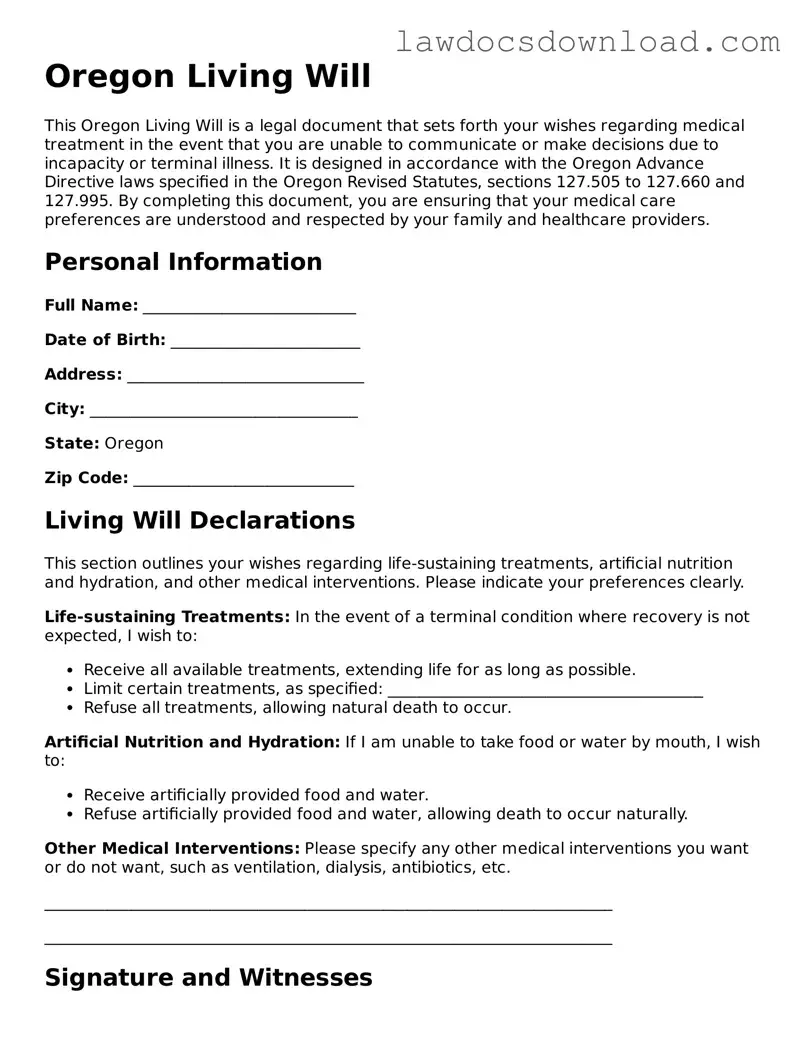Legal Oregon Living Will Form
The Oregon Living Will form, known officially as the Advance Directive, empowers individuals to outline their preferences for medical treatment in scenarios where they are unable to communicate their decisions. This document allows one to detail specific wishes concerning life-sustaining treatments, including interventions they would or would not like to receive. It serves as a crucial guide for healthcare providers and loved ones, ensuring that the individual's personal beliefs and medical preferences are respected during critical moments.
Launch Living Will Editor Here

Legal Oregon Living Will Form
Launch Living Will Editor Here

Launch Living Will Editor Here
or
Free Living Will
Get this form done in minutes
Complete your Living Will online and download the final PDF.